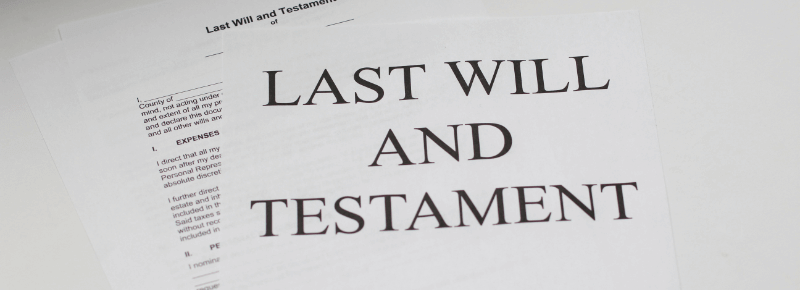Probate is the process of dealing with the estate of someone who has passed away. It generally involves getting permission to carry out the wishes within someone’s Will, organising and settling their estate, and possibly clearing any taxes and debts left behind.
There are specific rules that set out how you go about notifying the authorities and distributing the estate, so if you are responsible for executing someone’s Will, you need to be aware of how it all works.
Who is responsible for arranging probate?
If the deceased has left a Will, it will name someone that they have chosen to administer their estate. This person is known as the ‘executor’ of the Will. In most cases, this will be a family member or close friend of the deceased. The executor is the only person who can apply for probate to administer the estate.

If you have been appointed as an executor and you don’t want to administer probate yourself, you can appoint a professional executor. You may also want to do this if you’re faced with a particularly complex case. In fact, in complex cases, a professional executor may be essential. A professional executor will expect to be paid from the proceeds of the estate for carrying out this duty, and they will usually carry out the entire probate process and receive a fee for this also.
What does the probate process involve?
Every estate and every Will is different, and the exact probate process will depend on the instructions left in the Will and the assets and beneficiaries that the estate has. Here is the basic process for an executor:
- Gather the full details of the estate’s assets and debts
- Apply for a Grant of Probate, the legal document that gives you the authority to deal with the deceased’s property
- Notify banks, building societies, and relevant government departments such as the council and HMRC of the deceased person’s death (most government departments can be notified in a single move via the Tell Us Once service)
- Complete an inheritance tax return and pay any tax due
- You receive a Grant of Probate
- Repay any of the deceased’s outstanding debts
- Distribute the rest of the estate according to the instructions left in the Will.

Once all taxes and debts have been paid and all the inheritance has been passed on, probate ends. The process will take around a year for most estates, however, this will depend on the size and complexity of the estate. International probate can be more complicated and usually takes between six months and two years.
Can probate be contested?
Sometimes, disputes can arise during probate between the executor, beneficiaries, creditors, or tax authorities. These disputes can cause delays and if you aren’t already using a professional executor, you may need to list the help of a solicitor to advise on how to progress.
There are several ways in which probate could be contested. This could prevent you from even being given a Grant of Probate. In some cases, a beneficiary or relative of the deceased may enter a caveat, which can prevent or delay probate being granted. This might happen if two people are entitled to apply for probate, or if questions arise about the legitimacy of the Will. An individual can challenge or contest a Will if they believe:
- The Will has been forged
- The deceased had reduced mental capacity when writing their Will
- The deceased was under undue influence when writing their Will
- The person contesting the Will was financially dependent on the deceased and the Will doesn’t provide for them.

When a caveat is placed on the estate, the person who placed it will need to state their reasons within eight days, or it will be removed. Otherwise, it goes to the courts to resolve and probate will be granted to the most appropriate person.
What if there isn’t a Will?
In many cases, someone may pass away without having written a Will. If this is the case, you cannot get a Grant of Probate. You can, however, administer the estate and distribute inheritance through a slightly different process. Instead of being distributed through the terms of the Will, the estate must instead be distributed according to the Rules of Intestacy. Only spouses, civil partners, children, and other close relatives can inherit under these rules and the law will decide this based on an order or priority, as follows:
- Spouse or civil partner
- Children
- Grandchildren
- Great-grandchildren
- Parents
- Siblings
- Nieces and nephews
- Other close relatives.
Do you need help and advice with obtaining probate, or are you looking to appoint a professional executor? At Bromfield Legal, we have qualified experts who are well placed to assist. Please contact us to find out more.


